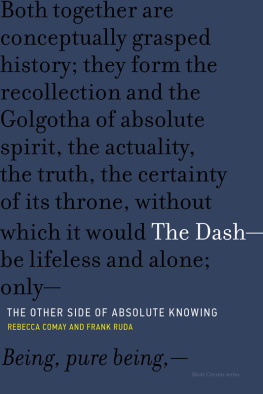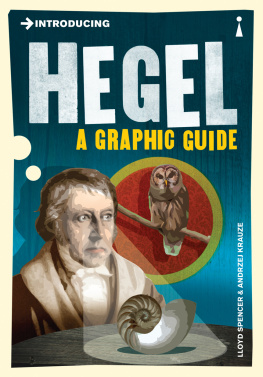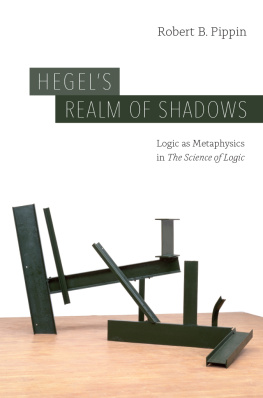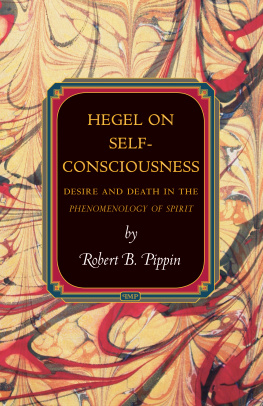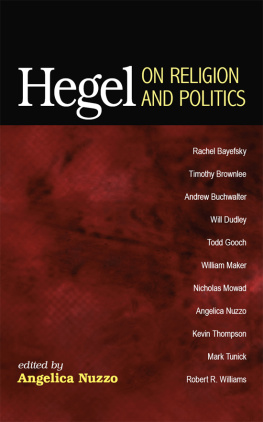Short Circuits
Mladen Dolar, Alenka Zupani, and Slavoj iek, editors
The Puppet and the Dwarf: The Perverse Core of Christianity, by Slavoj iek
The Shortest Shadow: Nietzsches Philosophy of the Two, by Alenka Zupani
Is Oedipus Online? Siting Freud after Freud, by Jerry Aline Flieger
Interrogation Machine: Laibach and NSK, by Alexei Monroe
The Parallax View, by Slavoj iek
A Voice and Nothing More, by Mladen Dolar
Subjectivity and Otherness: A Philosophical Reading of Lacan, by Lorenzo Chiesa
The Odd One In: On Comedy, by Alenka Zupani
The Monstrosity of Christ: Paradox or Dialectic? by Slavoj iek and John Milbank, edited by Creston Davis
Interface Fantasy: A Lacanian Cyborg Ontology, by Andr Nusselder
Lacan at the Scene, by Henry Bond
Laughter: Notes on a Passion, by Anca Parvulescu
All for Nothing: Hamlets Negativity, by Andrew Cutrofello
The Trouble with Pleasure: Deleuze and Psychoanalysis, by Aaron Schuster
What Is Sex? by Alenka Zupani
Liquidation World: On the Art of Living Absently, by Alexi Kukuljevic
Incontinence of the Void: Economical-Philosophical Spandrels, by Slavoj iek
The DashThe Other Side of Absolute Knowing, by Rebecca Comay and Frank Ruda
The DashThe Other Side of Absolute Knowing
Rebecca Comay and Frank Ruda
The MIT Press
Cambridge, Massachusetts
London, England
2018 Massachusetts Institute of Technology
All rights reserved. No part of this book may be reproduced in any form by any electronic or mechanical means (including photocopying, recording, or information storage and retrieval) without permission in writing from the publisher.
This book was set in Joanna MT Pro by Toppan Best-set Premedia Limited. Printed and bound in the United States of America.
Library of Congress Cataloging-in-Publication Data is available.
ISBN: 978-0-262-53535-9
eISBN 9780262346511
ePub Version 1.0
Series Foreword
A short circuit occurs when there is a faulty connection in the networkfaulty, of course, from the standpoint of the networks smooth functioning. Is not the shock of short-circuiting, therefore, one of the best metaphors for a critical reading? Is not one of the most effective critical procedures to cross wires that do not usually touch: to take a major classic (text, author, notion) and read it in a short-circuiting way, through the lens of a minor author, text, or conceptual apparatus (minor should be understood here in Deleuzes sense: not of lesser quality, but marginalized, disavowed by the hegemonic ideology, or dealing with a lower, less dignified topic)? If the minor reference is well chosen, such a procedure can lead to insights which completely shatter and undermine our common perceptions. This is what Marx, among others, did with philosophy and religion (short-circuiting philosophical speculation through the lens of political economy, that is to say, economic speculation); this is what Freud and Nietzsche did with morality (short-circuiting the highest ethical notions through the lens of the unconscious libidinal economy). What such a reading achieves is not a simple desublimation, a reduction of the higher intellectual content to its lower economic or libidinal cause; the aim of such an approach is, rather, the inherent decentering of the interpreted text, which brings to light its unthought, its disavowed presuppositions and consequences.
And this is what Short Circuits wants to do, again and again. The underlying premise of the series is that Lacanian psychoanalysis is a privileged instrument of such an approach, whose purpose is to illuminate a standard text or ideological formation, making it readable in a totally new waythe long history of Lacanian interventions in philosophy, religion, the arts (from the visual arts to the cinema, music, and literature), ideology, and politics justifies this premise. This, then, is not a new series of books on psychoanalysis, but a series of connections in the Freudian fieldof short Lacanian interventions in art, philosophy, theology, and ideology. Short Circuits intends to revive a practice of reading which confronts a classic text, author, or notion with its own hidden presuppositions, and thus reveals its disavowed truth. The basic criterion for the texts that will be published is that they effectuate such a theoretical short circuit. After reading a book in this series, the reader should not simply have learned something new: the point is, rather, to make him or her aware of anotherdisturbingside of something he or she knew all the time.
Slavoj iek
Introduction: Hegel to the Letter
This book works with a set of basic propositions that are all interrelated.
First: If you want to modernize Hegelto retrieve Hegel as a postcritical, profane thinker (that is, someone not only alert to the contingencies of social and historical existence but equipped and motivated to intervene in these)you sooner or later have to face the monster. Youve got to take seriously the most embarrassingly grandiose moment in the system, the point at which its all too tempting to start skimming, start apologizing, or simply put the book down: absolute knowing.
Hegels critics, from Kierkegaard onward, have never stopped reviling Hegels absolute idealism as a philosophy of identity (or of narcissism, if you wish): it swallows contingencies, it smothers singularities, it cancels out time, it consigns historical suffering to the slaughter bench of history. The climax of the system is thus the moment of its most terrible regression: absolute knowing is an updated form of Stoicisman ultimate indifference to the concrete world. Such indifference is expressed by philosophys principled disengagement from political life in the wake of the French Revolution and its subsequent sequestration as a priesthood apart The avowed aim of his philosophy was to grasp its own time in thought.
Jean Hyppolite remarked on the shift that occurs with the move into the sphere of religion in the Phenomenology: we leave all phenomena behind and the phenomenology turns into a noumenology, a revelation of what lies behind and beyond appearances.an exposition of a moment before time, a timeless pastness of all the categories constitutive of the world and thought. Hegel thus performs a megalomaniac transgression of Kants prohibition: he presents us with everything needed to think everything that is, was, and will ever be. We are invited to think what God thought before he created the worldwe become privy to a world without usa privilege that, however, only forces us to give up any idea of changing the world we do have (for we could not but rely on the categories that are permanently constitutive of this world and that establish its necessity). But this form of absolute knowing, as Schelling objected, gives a monstrous precedence to logic, not only over the workings of human history, but also over nature, even over the nature that unconsciously works inside all of us (a point Kierkegaard will also emphasize). This is an abbreviated balance sheet of the conceit that stands at the center of Hegels thoughta claim so exaggeratedly absolute it seems irredeemable for any form of contemporary thinking.
Given this historical consensus, the contemporary state of Hegels reception is peculiar. For the generalized disparagement of absolute knowing no longer entails a dismissal of Hegels thought altogether, as it did for most of the last two centuries. Even Hegels un-owl-of-Minerva-ish geopolitical prophecies have proved to be not so outlandish (for example, his description of the impending global hegemony of the United States)

